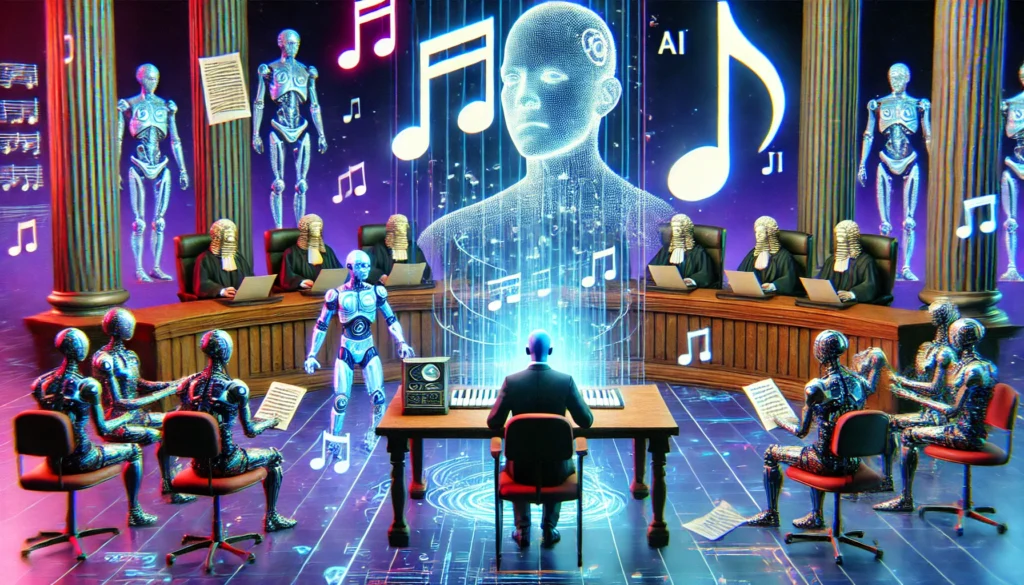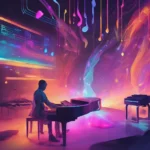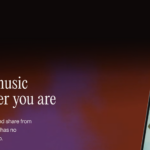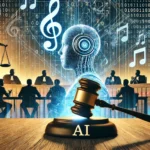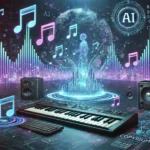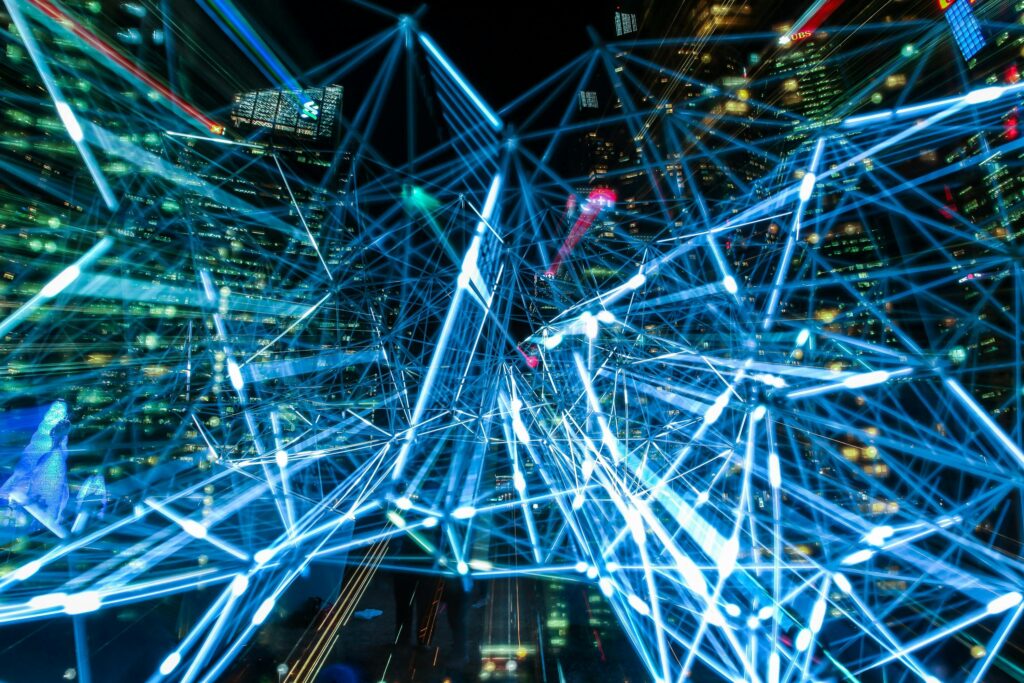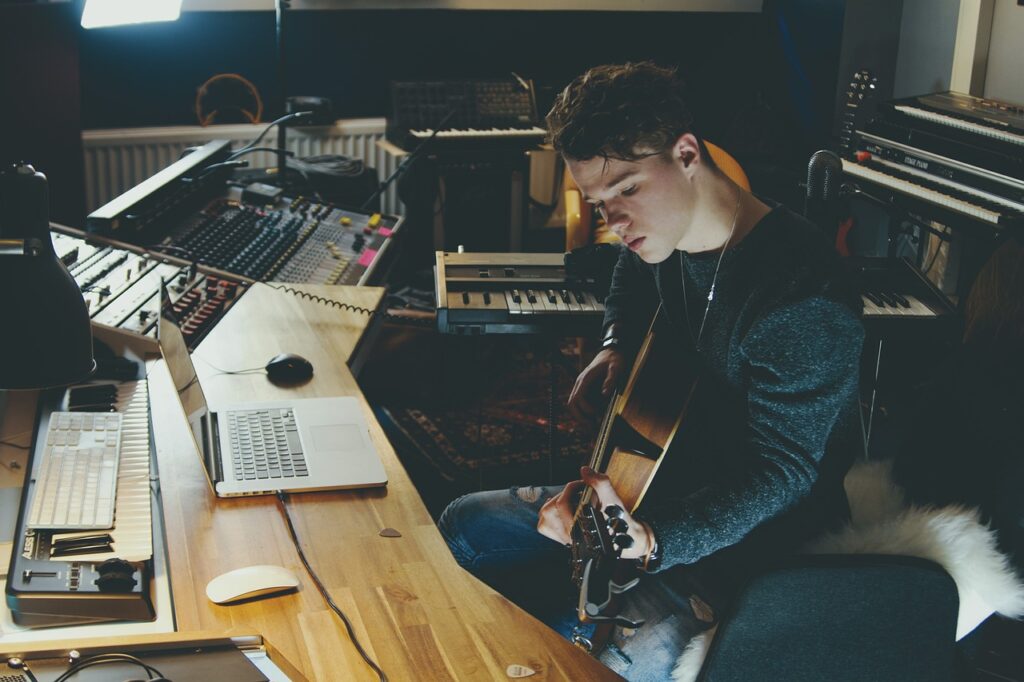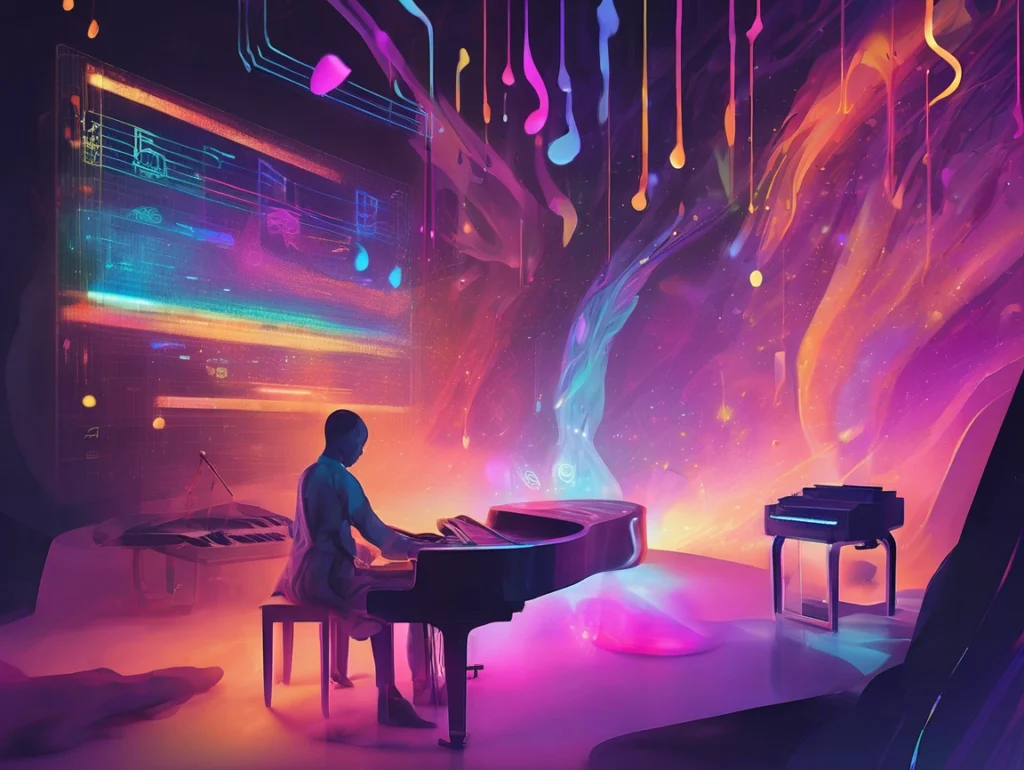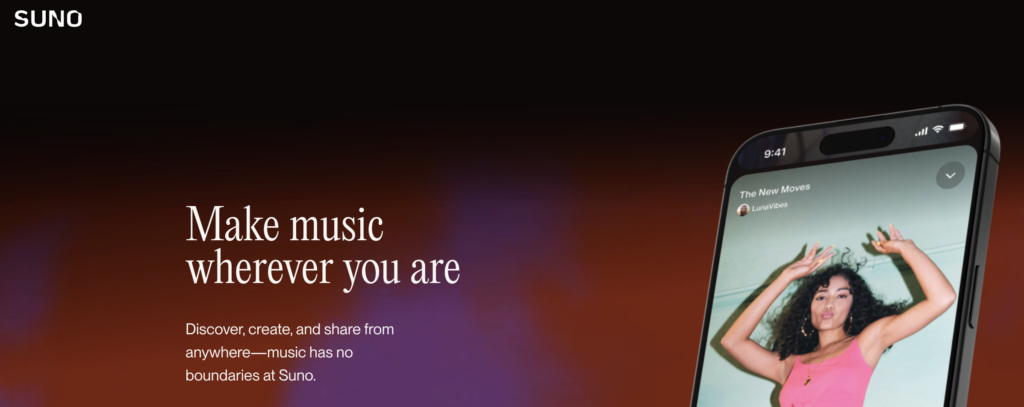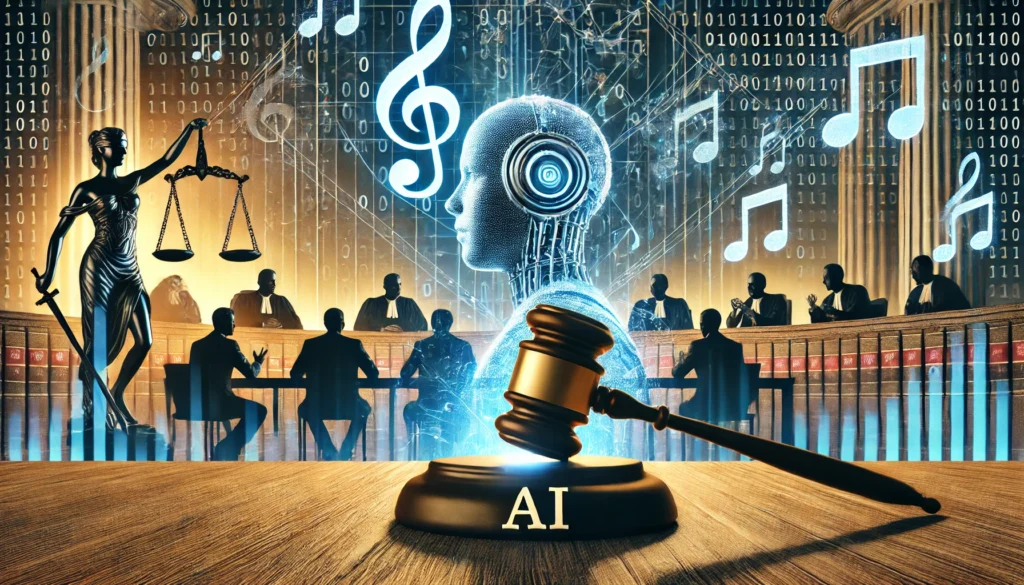Key Takeaways
- AI-generated music now accounts for 12% of digital compositions, creating urgent legal questions about ownership and copyright.
- The U.S. Copyright Office currently requires “significant human contribution” to grant copyright protection to AI-created works.
- Ownership claims are divided between software developers, musicians, and advocates for public domain status.
- Legal frameworks vary globally, with the EU considering shared copyright models while Asian countries develop new approaches.
- Musicians using AI tools should document their creative input and understand licensing agreements to strengthen ownership claims.
Introduction
The music industry is experiencing a profound transformation. AI-powered tools can now compose complete songs in seconds, blurring the line between human and machine creativity. This technological leap raises a critical question: who owns AI-generated music?
The answer isn’t straightforward. Can an AI-created track receive copyright protection? Does ownership belong to the musician who prompted the AI, the software developer who built it, or perhaps the AI itself?
With AI-generated music representing 12% of digital compositions, this legal ambiguity demands attention. Courts have issued conflicting rulings—some reject AI copyright claims outright, while others recognize human contribution as the key to legal protection.
Let’s explore the complex legal landscape, significant court cases, and emerging trends that are shaping the future of AI music ownership.
Can AI Music Be Owned? Understanding the Legal Framework
The Definition of Ownership in Music Copyright Law
Traditional music copyright law follows a simple principle: human creators own the rights to their work. But when AI systems compose autonomously, legal systems worldwide struggle to adapt to this new reality.
Different jurisdictions are taking varied approaches:
- United States: The U.S. Copyright Office currently denies protection to AI-only works unless there is “significant human contribution” in the creative process.
- European Union: EU copyright frameworks suggest AI-assisted works may qualify for shared ownership status, with the extent of protection depending on human involvement.
- Asia & Beyond: Japan and China are developing innovative copyright models specifically addressing AI-generated content.
The unique nature of AI music creates fundamental challenges for copyright law. Traditional frameworks weren’t designed for works where the primary creative force isn’t human. This leaves courts and legislators scrambling to determine if and when copyright protection should apply.
ALSO: Can You Copyright AI Music in 2025?
Who Owns AI-Generated Music? Exploring Different Claims
1. Software Developers
Many argue that AI tool developers should own the rights to music created with their systems since they built the algorithms enabling the composition.
- Platforms like Aiva and Boomy typically include licensing agreements stating ownership remains with the platform.
- Some developers opt for Creative Commons licensing or implement royalty-sharing models with the artists using their tools.
The developer perspective emphasizes the years of engineering and training that make AI music generation possible. Without their innovation, the music wouldn’t exist in the first place.
2. Musicians & Producers
Musicians who incorporate AI tools into their workflow contend that they should maintain ownership rights, viewing AI as just another instrument in their creative arsenal.
- Most AI-generated tracks involve meaningful human direction, such as selecting arrangements, refining outputs, or integrating lyrics.
- Artists point out that the music industry has historically granted copyright to creators using digital tools and software—AI should be treated similarly.
From this viewpoint, the human artist’s creative vision and curation remain central to the work, even when AI handles aspects of composition.
ALSO: Can AI Music Generators Replace Human Composers?
3. Public Domain & AI
A third perspective suggests that purely AI-generated music should belong to no one, effectively placing it in the public domain.
- When no human authorship exists, some legal experts argue AI music cannot qualify for copyright protection under current laws.
- This approach would enable free and open use but might reduce financial incentives for AI music platform development.
This view recognizes the fundamental difference between human and machine creativity, suggesting that copyright law should remain exclusive to human-created works.
Copyright Laws & AI Music Ownership: A Global Perspective
United States: The Current Ruling
American copyright law currently maintains a human-centric approach:
- The U.S. Copyright Office has established that AI-generated works cannot receive copyright protection unless substantial human creativity is demonstrated.
- In the influential case of Thaler v. Perlmutter, the court rejected copyright claims for AI-generated artwork, reinforcing the human authorship requirement.
This position creates significant challenges for those seeking to commercialize purely AI-generated music in the American market.
European Union: Shared Copyright Possibilities
The EU is taking a more flexible approach:
- European legislators are developing new frameworks specifically addressing AI-generated content.
- Proposed regulations may allow artists to share ownership rights with AI developers under certain conditions.
This nuanced approach acknowledges both human and technological contributions to the creative process.
Asia: Varied Approaches
Asian countries are pioneering diverse solutions:
- China is exploring regulatory frameworks to extend protection to AI-generated content while balancing innovation and creator rights.
- Japan has shown openness to granting limited copyright protection to human creators working with AI systems.
These regional variations create a complex international landscape for AI music creators and distributors.
Legal Challenges and Lawsuits in AI Music Ownership
1. AI Music Copyright Disputes
The courts have already begun grappling with AI music ownership:
- Google’s DeepMind faced claims from music publishers after its AI system generated compositions that allegedly resembled copyrighted works.
- Sony AI’s “Daddy’s Car” marked an early case where a company retained ownership of an AI-composed track styled after The Beatles.
- OpenAI’s Jukebox sparked debate about originality and authenticity when it created songs mimicking well-known artists’ styles.
These cases highlight the tension between innovation and established intellectual property rights.
2. Copyright Infringement Concerns
AI systems trained on existing music raise serious legal questions:
- Potential plagiarism: Can AI systems inadvertently reproduce distinctive elements of copyrighted songs?
- Training data issues: If AI learns from copyrighted music, does its output constitute derivative work?
These concerns create legal risk for both AI developers and musicians using these tools commercially.
How Musicians Can Protect Their Rights in AI Music
1. Licensing AI Music
Musicians working with AI have several licensing options:
- Creative Commons licensing provides a flexible framework for sharing AI-assisted work while maintaining some rights.
- Commercial licensing remains viable for AI-generated music with significant human input.
Understanding these options helps artists balance creative sharing with financial opportunities. Read my full article about it:
2. Registering AI Music With Copyright Offices
Some registration pathways exist:
- Certain jurisdictions permit partial copyright registration when demonstrable human elements are present in AI-generated work.
- Blockchain verification through smart contracts offers an alternative method to document creation and establish provenance.
These approaches provide some legal protection, though with important limitations based on human contribution.
3. Best Practices for AI-Assisted Musicians
Artists can strengthen their position through strategic approaches:
- Thoroughly document all human creative decisions made during the AI music creation process.
- Position AI as a collaborative tool rather than the primary creator in your workflow.
- Carefully review all licensing agreements before using AI-generated material commercially.
These practices help establish stronger ownership claims while navigating uncertain legal territory.
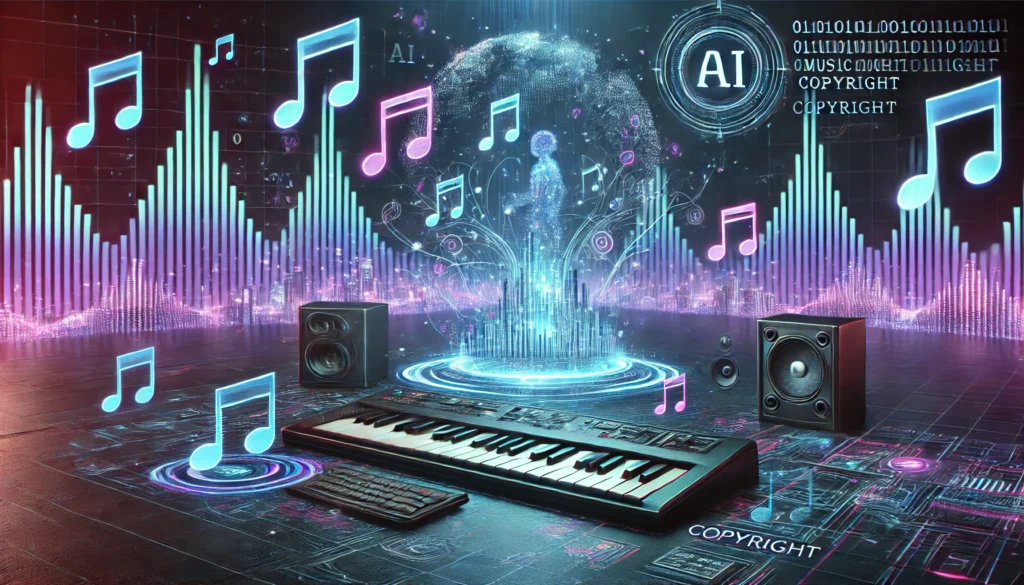
The Future of AI Music Ownership: What’s Next?
1. Evolving Copyright Laws
Legal frameworks are gradually adapting:
- Government agencies worldwide are drafting specialized AI copyright policies to address the unique challenges of machine-created content.
- Future court decisions may recognize tiered or partial ownership rights based on the degree of human involvement.
This ongoing evolution suggests that today’s legal ambiguity will eventually give way to clearer standards.
2. Blockchain Technology & AI Music
Decentralized technologies offer promising solutions:
- Platforms built on Ethereum and music-specific blockchain networks like Audius enable transparent and automated royalty distribution.
- Immutable digital records can document the creative process, establishing clear evidence of human-AI collaboration.
These technologies may bridge the gap between existing legal frameworks and the realities of AI-assisted creation.
3. AI-Exclusive Intellectual Property Laws
Some legal experts advocate for more fundamental change:
- New legal frameworks could be developed specifically for AI-generated content, separate from traditional copyright.
- The industry might benefit from specialized regulatory bodies with expertise in both technology and creative rights.
These forward-looking proposals acknowledge that fitting AI creation into existing frameworks may ultimately prove inadequate.
Conclusion
The debate over AI music ownership remains unresolved as technology continues to evolve faster than legal systems can adapt. While human creative input currently determines copyright eligibility in most jurisdictions, software developers, licensing authorities, and courts are all influencing how AI music rights will be defined.
For today’s musicians and producers, understanding AI music copyright limitations, licensing options, and available legal protections is essential. Whether you’re creating AI-assisted compositions or exploring new business models, navigating these ownership challenges will be crucial to your success in the evolving music landscape.
The coming years will likely bring greater clarity as case law develops and legislators respond to this rapidly growing sector of the music industry. Until then, the best approach combines creative exploration with careful attention to the legal dimensions of AI collaboration.
What are your thoughts on who should own AI-generated music? The conversation is just beginning.

